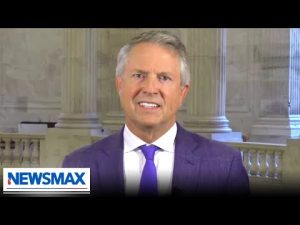In today’s America, the irony of the so-called “progressive” movement often resembles something straight out of a satire piece. Take for instance the situation unfolding around the Cincinnati jazz festival. For years, this festival has been a symbol of unity and celebration of Black culture. However, recently it has become embroiled in a flurry of controversy that reveals a much deeper, unsettling narrative.
A new trend, supported by the festival’s proponents, encourages travelers to support Black-owned businesses. On the surface, this appears commendable; supporting local businesses is always a good thing. But scratch a little deeper, and one sees a more divisive agenda at play. For nearly a decade, a pernicious message has been circulating, insinuating that white people are the root of many community problems. One must wonder how such rhetoric, undoubtedly amplified by certain voices in politics and media, doesn’t contribute to racially charged confrontations, such as the alarming attacks on white individuals which coincidentally took place during this very festival.
The politicians and media that perpetuate these narratives bear a heavy responsibility. By continuously pointing fingers and vilifying a particular group, they foster an environment ripe for hostility. The history is clear when the festival finds itself in the midst of controversies. It’s as though there’s an ever-moving goalpost. When white-owned businesses remain open, they are criticized for being part of the problem. When they close, ostensibly to avoid confrontation or maintain safety, they are accused of racism. This bizarre situation begs a simple question: what do these critics truly want? One gets the impression they aren’t entirely sure themselves.
In a world where logic takes a backseat for many in the progressive camp, conservatives have to step up and state the obvious. Business decisions, whether to stay open or close, should be respected. What is genuinely dangerous is the growing narrative that reduces all societal issues to race relations, fanning the flames of division. At the end of the day, unity is not built through boycotts and accusations; it is built through mutual respect and understanding across all communities. As this festival shows, we’ve got a long journey ahead.







